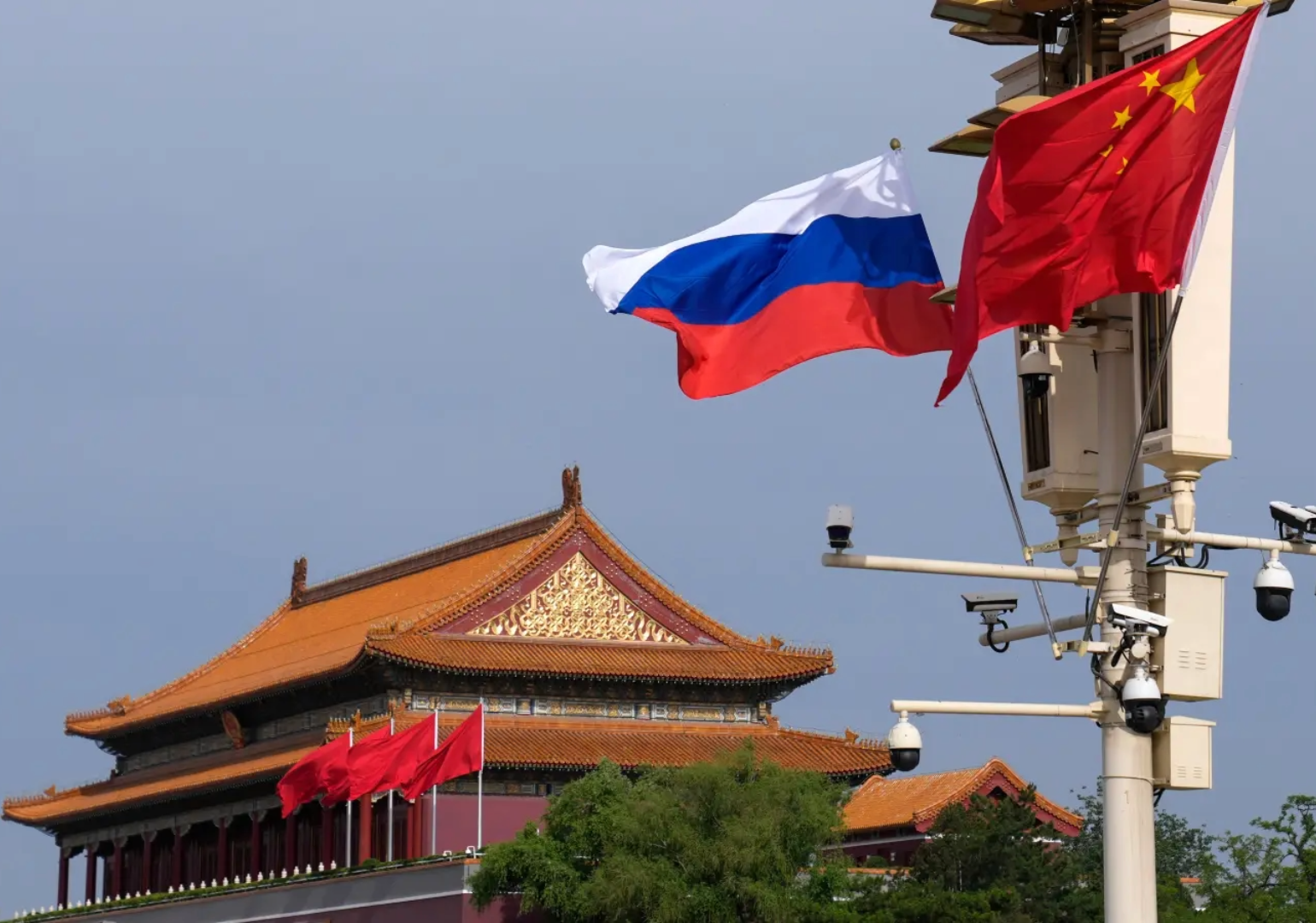Since the 2022 full-scale invasion of Ukraine, Russia, the People’s Republic of China (PRC), Iran and North Korea have augmented their capabilities and gone on the offensive against the West. Initially, these “axis of upheaval” countries increased cooperation in support of the Russian war effort; sharing information, defense technology, and deepening military ties. However, said cooperation also increased their capacity for power projection beyond Ukraine. With axis countries now expanding their presence deeper into the Black Sea and South Caucasus, they pose a growing challenge to the influence of the U.S. and its allies across the region.
The PRC-Russia dyad has become an anchor for trilateral cooperation with regional authoritarian governments. Beijing is concerned that if Russia is defeated in Ukraine, the U.S. will shift its full attention towards countering the PRC in the Indo-Pacific. As a countermeasure, current Sino-Russian cooperation strategy prioritizes fracturing the U.S.’s attention through crises in their Eurasian proxy states, like Georgia.
Ruling party Georgian Dream seeks to maintain control over their domestic population, while retaining room to maneuver in a complex regional security environment. Russia and the PRC offer the technological infrastructure to make this possible. Using their tools, Georgian Dream has escalated crackdowns against the country’s pro-Western majority and secured one-party rule. The PRC and Russia have successfully turned Georgia into a “laboratory” for experimentation with authoritarian control, opening the door for further ties with U.S. adversaries to develop.
PRC-Russia Digital Cooperation
In 2021, Russian and Chinese state media signed a ministerial level agreement on information cooperation, pledging to strengthen “mutually beneficial cooperation in such issues as integration [and] the application of new technologies.” The agreement was also signed by Chinese technology and telecommunications firm Huawei, adding a “broader digital infrastructure component to the partnership.”
The PRC has built out from this initial convergence in the information space to forward base digital surveillance infrastructure in neighboring states. In autocracies across Central Asia, including Kazakhstan and Kyrgyzstan, strategic partnerships were introduced to consolidate such infrastructure. Help in establishing the framework for digital surveillance states was exchanged for alignment with Sino-Russian foreign policy leverage later on. Said model is now being replicated in Georgia.
Chinese Security Infrastructure in Georgia
The presence of Chinese internal security management technology has grown in Georgia across several sectors: digital surveillance infrastructure, law enforcement practices, and next-generation training. Out of all listed, adopting the PRC’s digital surveillance infrastructure, specifically surveillance cameras, most seriously exposes Georgia to long-term cyber and information security risks.
Over the past five years, Georgian government ministries have spent millions of lari on procurement contracts with PRC-based companies for surveillance cameras. Top suppliers include Zhejiang Dahua Vision Technology Co., Ltd. and Hangzhou Hikvision Digital Technology Co.,Ltd, Tiandy Technologies Co., Ltd. Since late November 2024, cameras damaged along Rustaveli Avenue and other main protest junctures have been replaced with Dahua PTZ (pan–tilt-zoom) models. The Dahua PTZ camera runs facial recognition software used to identify, fine and jail opponents; narrowing avenues for dissent against the state. Government ministries, including the Ministry of Internal Affairs, already hold contracts for the Russian special services-affiliated facial recognition software POLYFACE. Present uses likely include processing biometric data from the new Dahua PTZ cameras.
Espionage Risks
All data collected by surveillance cameras in Georgia is accessible to Chinese state intelligence agencies. Under the 2017 National Intelligence Law, PRC-based suppliers are mandated to cooperate with all requests for information from the Chinese government, including on their operations outside of China. Potential for backdoor monitoring of their systems by the PRC remains an existent threat as well.
An example from 2023 Ukraine demonstrates potential avenues for Russia to exploit software-based connections to Chinese surveillance cameras in Georgia. Even after the full-scale invasion began, Hikvision cameras installed in Ukrainian government institutions were operated using Russian TRASSIR CCTV systems. TRASSIR software is owned by DSSL, a surveillance systems supplier that services the Russian government and military. As a result, even when used externally, TRASSIR transfers data to a Moscow-based subdomain connected to the FSB’s Center for Information Protection and Special Communication.
Future Implications
Using PRC and Russian-origin surveillance systems together poses significant risk of data breaches. By importing Sino-Russian surveillance technology, Georgian Dream has weakened its national security in exchange for short-term domestic control. After being procured by Georgian state security apparatuses, overlapping use has allowed the PRC-Russia dyad to refine its cooperation in digital surveillance. This emerging coordination presents a more coherent blueprint for future replication, and further undermining of Western influence in a region where it is already precarious.
The PRC and Russia currently benefit from their parallel encroachment into Georgia’s digital surveillance infrastructure. In the future, however, the PRC may turn to Georgia as a base for espionage against Russia. PRC-linked cyber actors have previously breached Russian IT companies with cyberattacks concurrently targeting multiple unrelated third countries. From January to May 2025, advanced persistent threat (APT) actor Jewelbug carried out a five-month intrusion on a Russian IT service provider. This overlapped with breaches in various other countries, including “a South American government, and IT firms in Taiwan and South Asia.”
Despite ongoing military and technological cooperation between the PRC and Russia, Russia equally “remains a target of Chinese cyber espionage.” The PRC has proven it will not hesitate to use its presence in allied third countries, including Georgia, to facilitate future attacks.











